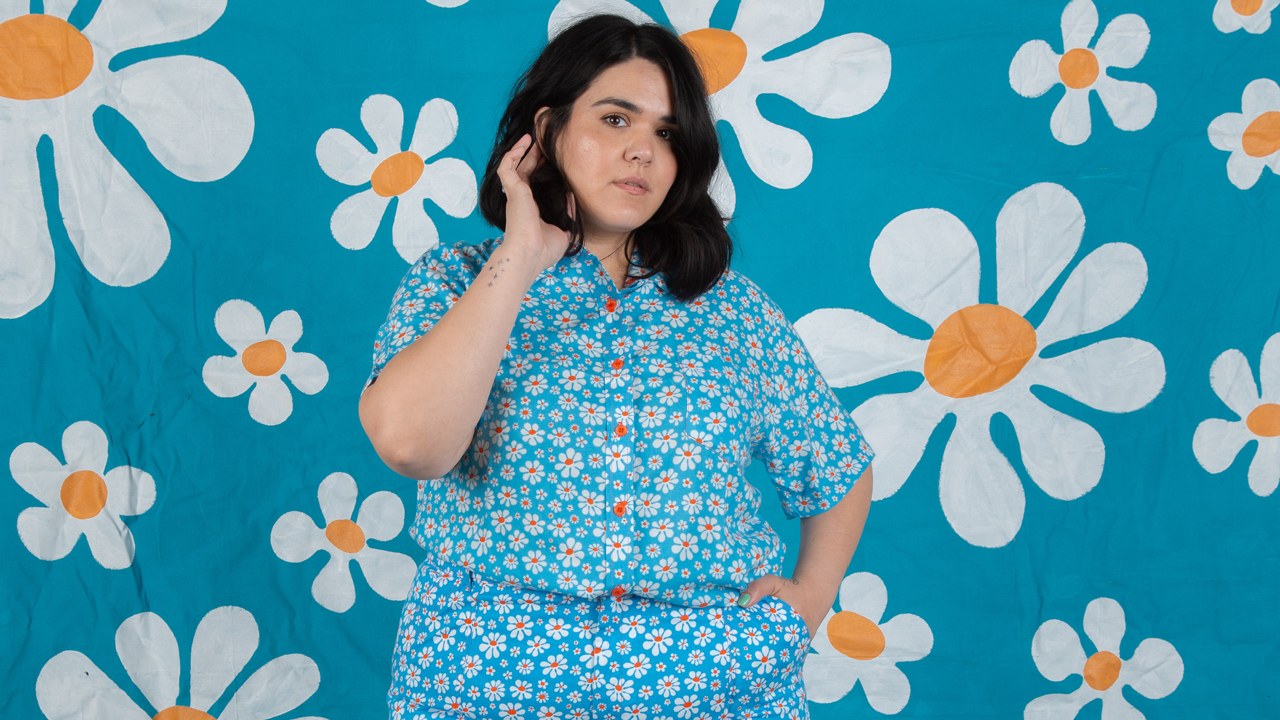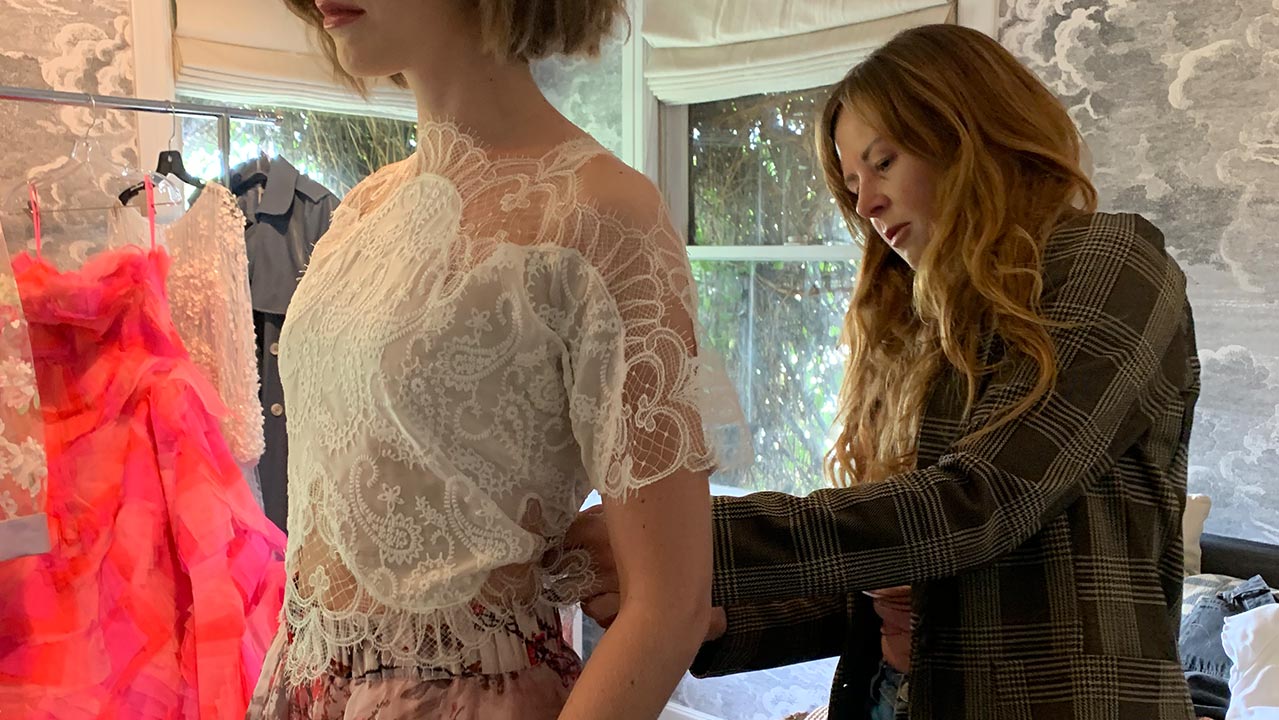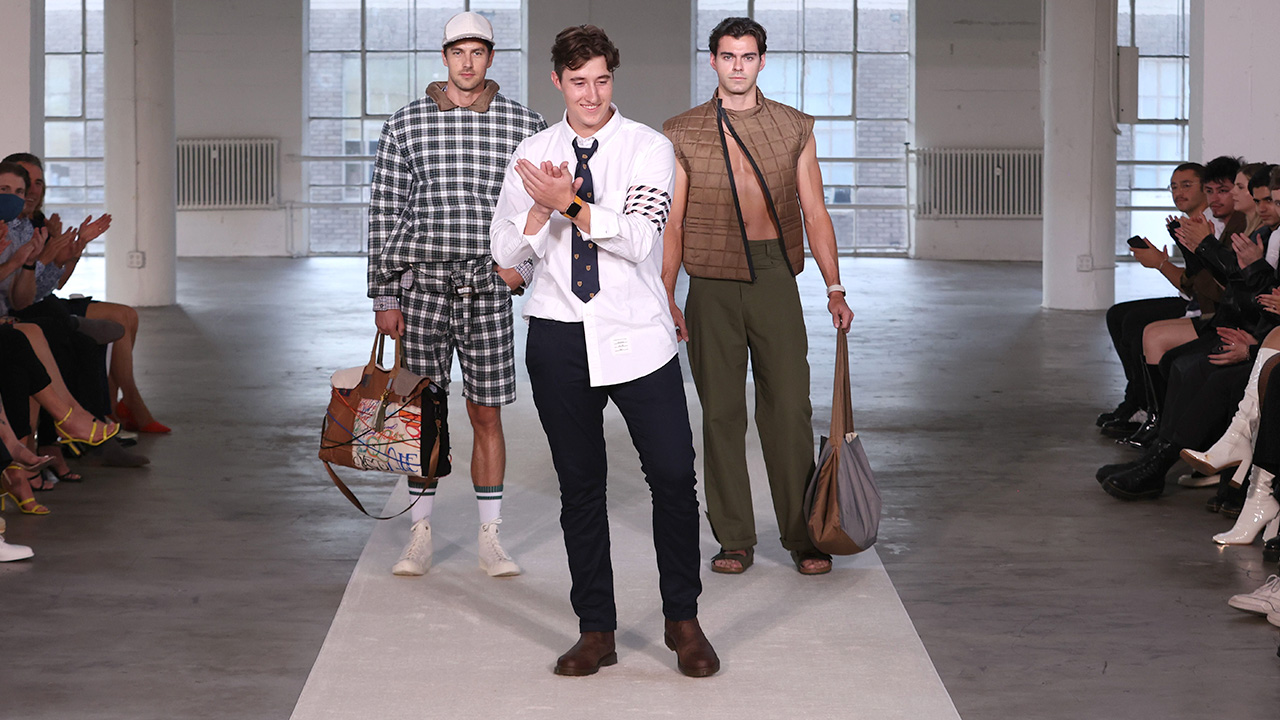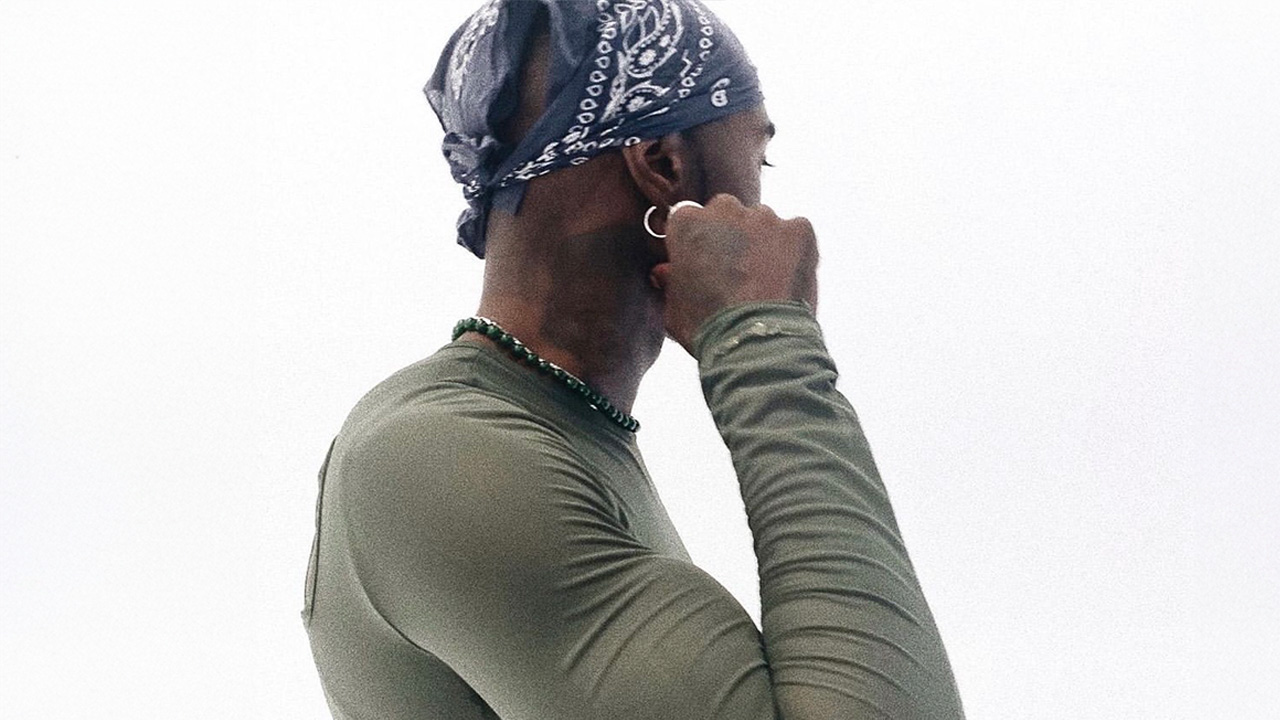
Alumni
Apparel Industry Management Grad's Size Inclusive Line Featured in Teen Vogue
Along with his partner Lacey Micallef, Apparel Industry Management Graduate Philip Seastrom is the creative force behind the Los Angeles-based unisex and size inclusive apparel company, Big Bud Press, which was recently featured in Teen Vogue. The fast-growing label, inspired by late sixties and early seventies pop art and advertisements, prides itself on ethical and local manufacturing practices.
Lacey and Philip describe the colorful brand as “non-trend driven,” and believe that beauty is found through authenticity. According to Teen Vogue: "They feature clothes, bags, and other accessories in an epic range of colors. And the options don’t stop there. Currently, you can shop Big Pud Press in sizes 3XS-5XL, and they have hopes to radically expand their already extensive size range."
The duo interacts with fans and customers on social media (they have 186,000 followers on Instagram alone) while explaining ethical buying methods, fair wages, and sustainability. When they're asked, “Why does this cost so much?” they talk about locally sourced fabrics, livable wages for their employees, and making everything in Los Angeles. In other words, they're the opposite of fast fashion retailers that sell five dollar t-shirts.
In their minds, Big Bud Press pieces should last way beyond a trend cycle or season. "I have fluctuated in the same 100-pound weight window for a really long time, and as my weight fluctuates, I have to change where I shop. If you gain or lose 50 lbs, I'd like for you to be able to still shop from us," Lacey told the magazine.
When talking about bygone fashion that inspires their designs, Philip said, "I feel like people were less afraid back then to express themselves and the world was less of a corporate place. Every city in America used to have one or two department stores. So that made it so that there was a wealth of beautiful things being made by these companies to compete with each other to create something beautiful. Now that everything is so corporate and homogenized, no one is trying to speak to the individual."
Visit bigbudpress.com to learn more.
Categories: Apparel Industry Management Alumni




